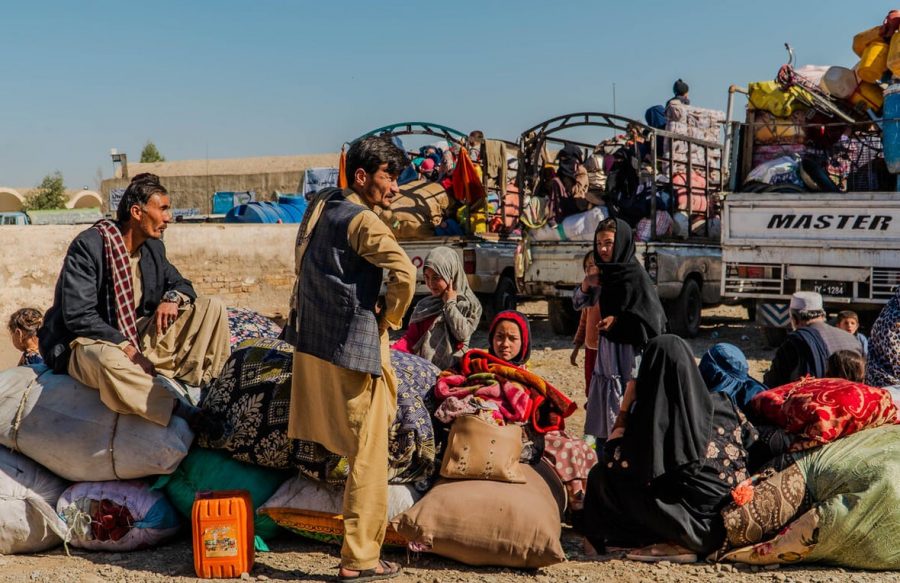
By Safwan Ali
Currently, around 3.7 million Afghan refugees live in Pakistan. Many have been living here for decades with their children born and raised in Pakistan. In a dramatic shift in policy, Islamabad has declared that it will deport these refugees in an attempt to strengthen national security, citing increasing concerns about cross-border terrorism and the existence of terrorist groups like Tehreek-e-Taliban Pakistan (TTP). While border security is a valid objective, mass deportation poses significant economic, political, and humanitarian risks. Pakistan today confronts the problem of balancing its security objectives with its enduring humanitarian commitments and international obligations.
There are three plausible approaches to tackle the issue of Afghan refugees in Pakistan. Mass deportation is the most popular yet concerning course of action. This strategy is primarily motivated by the increase in terrorist activities associated with Afghanistan-based outfits such as the Tehrik-i-Taliban Pakistan (TTP), which is a fastest growing terrorist group according to the Global Terrorism Index. Given the recent increase in violence and the porous nature of the Pak-Afghan border, it is logical to advocate for stricter regulations. However, mass deportations of refugees, pose serious humanitarian and societal concerns. Afghani girls who have been able to receive education in Pakistan, are fearing to be thrown in a country that denies them their fundamental right to education. This goes against Pakistan’s dedication to the United Nations’ Sustainable Development Goal (SDG) 4, which states that everyone should have access to high-quality education. Forced repatriation might also destabilise broader communities, which could impede Pakistan’s progress towards Sustainable Development Goal 16, which aims to create inclusive and peaceful societies.
The full-scale integration of Refugees into the Pakistani society is another yet complicate alternative. It would grant refugees the access to healthcare, education, and opportunities for employment. From a sociocultural and developmental standpoint, integration fosters enduring peace and productivity. This also corresponds with Pakistan’s initiatives pertaining to SDG 16. However, this path is fraught with complications. Public opposition, institutional constraints, and security concerns hinder the attainment of complete integration without robust systems and political consensus. This method offers long-term advantages but requires money and extensive support that may not be attainable in the short term.
An equitable and more feasible strategy would entail enhancing border security while permitting gradual and voluntary resettlement. Pakistan has already undertaken substantial measures in this regard, including the construction of nearly 2,200 km of fencing along the Afghan border and the maintenance of systems such as Proof of Registration (POR) and Afghan Citizen Cards (ACC). These instruments can help in border enforcements. Through collaboration with international agencies, Pakistan can guarantee that refugees are afforded the opportunity to either repatriate under safer circumstances or resettle in foreign countries. This progressive strategy will mitigate the risk of civil disorder and enable Islamabad to oversee refugee demographics without compromising national security. Most importantly, this policy will strengthen peace while averting a humanitarian crisis which Pakistan cannot afford.
A coordinated plan of action that include temporary inclusion and progressive relocation seems feasible to move forward. As safe and voluntary resettlement efforts are undertaken, refugees should be permitted to stay under a controlled, legal framework. This approach will acknowledge Pakistan’s sovereignty and handle valid security issues, while simultaneously respecting Pakistan’s continuing humanitarian contributions. It endorses both SDG 4 and 16 by maintaining educational access and promoting cross-cultural harmony.
This policy is also supported by compelling economic rationale. Afghan refugees substantially enhance local economies, especially in construction, agriculture, and informal markets. An immediate deportation would result in labour shortages and economic turmoil, particularly in metropolitan areas and small businesses.
Pakistan already has the infrastructure to manage refugee populations which has been immensely supported by UNHCR. Biometric registration systems and digital databases can be expanded to augment monitoring, guarantee accountability, and strengthen border security. These methods can additionally be employed to identify high-risk individuals while safeguarding vulnerable families. The approach is both pragmatic and effective, supported by institutional backing and international collaboration. Furthermore, maintaining relations with Afghan refugees would enhance Pakistan’s regional influence. Thousands of refugees act as informal connectors between the two nations, facilitating interpersonal contacts and soft diplomacy. Pakistan’s influence in upcoming regional diplomacy may suffer if these relations are abruptly severed. Maintaining ties would also reflect Islamabad’s commitment to inclusive development, which is vital for global standing.
Pakistan can fulfil both its humanitarian and national security obligations. Islamabad’s success against terrorists along its western border demonstrates that the state possesses both the resources and the capability to uphold its security. This capability can be utilised to attain wider security objectives while facilitating a dignified and systematic schedule for the resettlement of Afghan refugees. A deliberate, gradual strategy that integrates temporary inclusion with progressive resettlement is both humanitarian and strategic. It safeguards borders, fosters economic and social stability, and maintains Pakistan’s international obligations. This is not indicative of weakness, but rather of confidence. Afghan refugees do not undermine Pakistan’s stability. They serve as an evaluation of it.
About the author
Safwan Ali is a second-year graduate student at the Seton Hall School of Diplomacy and International Relations, specializing in International Security and Foreign Policy Analysis. Currently, He is a research assistant in the School of Diplomacy. Safwan completed his bachelor’s degree in Defense and Strategic Studies from National Defence University, Islamabad.